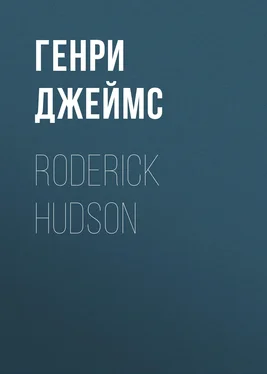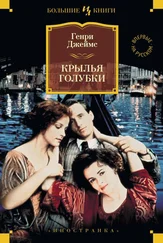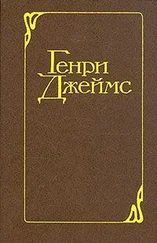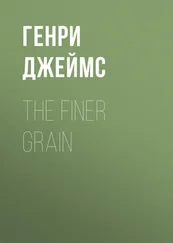Генри Джеймс - Roderick Hudson
Здесь есть возможность читать онлайн «Генри Джеймс - Roderick Hudson» — ознакомительный отрывок электронной книги совершенно бесплатно, а после прочтения отрывка купить полную версию. В некоторых случаях можно слушать аудио, скачать через торрент в формате fb2 и присутствует краткое содержание. Жанр: foreign_prose, foreign_antique, на английском языке. Описание произведения, (предисловие) а так же отзывы посетителей доступны на портале библиотеки ЛибКат.
- Название:Roderick Hudson
- Автор:
- Жанр:
- Год:неизвестен
- ISBN:нет данных
- Рейтинг книги:4 / 5. Голосов: 1
-
Избранное:Добавить в избранное
- Отзывы:
-
Ваша оценка:
- 80
- 1
- 2
- 3
- 4
- 5
Roderick Hudson: краткое содержание, описание и аннотация
Предлагаем к чтению аннотацию, описание, краткое содержание или предисловие (зависит от того, что написал сам автор книги «Roderick Hudson»). Если вы не нашли необходимую информацию о книге — напишите в комментариях, мы постараемся отыскать её.
Roderick Hudson — читать онлайн ознакомительный отрывок
Ниже представлен текст книги, разбитый по страницам. Система сохранения места последней прочитанной страницы, позволяет с удобством читать онлайн бесплатно книгу «Roderick Hudson», без необходимости каждый раз заново искать на чём Вы остановились. Поставьте закладку, и сможете в любой момент перейти на страницу, на которой закончили чтение.
Интервал:
Закладка:
“There are no such people,” said Roderick. “Besides, the little old man is not the papa.” Rowland smiled, wondering how he had ascertained these facts, and the young sculptor went on. “The old man is a Roman, a hanger-on of the mamma, a useful personage who now and then gets asked to dinner. The ladies are foreigners, from some Northern country; I won’t say which.”
“Perhaps from the State of Maine,” said Rowland.
“No, she ‘s not an American, I ‘ll lay a wager on that. She ‘s a daughter of this elder world. We shall see her again, I pray my stars; but if we don’t, I shall have done something I never expected to—I shall have had a glimpse of ideal beauty.” He sat down again and went on with his sketch of the Juno, scrawled away for ten minutes, and then handed the result in silence to Rowland. Rowland uttered an exclamation of surprise and applause. The drawing represented the Juno as to the position of the head, the brow, and the broad fillet across the hair; but the eyes, the mouth, the physiognomy were a vivid portrait of the young girl with the poodle. “I have been wanting a subject,” said Roderick: “there ‘s one made to my hand! And now for work!”
They saw no more of the young girl, though Roderick looked hopefully, for some days, into the carriages on the Pincian. She had evidently been but passing through Rome; Naples or Florence now happily possessed her, and she was guiding her fleecy companion through the Villa Reale or the Boboli Gardens with the same superb defiance of irony. Roderick went to work and spent a month shut up in his studio; he had an idea, and he was not to rest till he had embodied it. He had established himself in the basement of a huge, dusky, dilapidated old house, in that long, tortuous, and preeminently Roman street which leads from the Corso to the Bridge of St. Angelo. The black archway which admitted you might have served as the portal of the Augean stables, but you emerged presently upon a mouldy little court, of which the fourth side was formed by a narrow terrace, overhanging the Tiber. Here, along the parapet, were stationed half a dozen shapeless fragments of sculpture, with a couple of meagre orange-trees in terra-cotta tubs, and an oleander that never flowered. The unclean, historic river swept beneath; behind were dusky, reeking walls, spotted here and there with hanging rags and flower-pots in windows; opposite, at a distance, were the bare brown banks of the stream, the huge rotunda of St. Angelo, tipped with its seraphic statue, the dome of St. Peter’s, and the broad-topped pines of the Villa Doria. The place was crumbling and shabby and melancholy, but the river was delightful, the rent was a trifle, and everything was picturesque. Roderick was in the best humor with his quarters from the first, and was certain that the working mood there would be intenser in an hour than in twenty years of Northampton. His studio was a huge, empty room with a vaulted ceiling, covered with vague, dark traces of an old fresco, which Rowland, when he spent an hour with his friend, used to stare at vainly for some surviving coherence of floating draperies and clasping arms. Roderick had lodged himself economically in the same quarter. He occupied a fifth floor on the Ripetta, but he was only at home to sleep, for when he was not at work he was either lounging in Rowland’s more luxurious rooms or strolling through streets and churches and gardens.
Rowland had found a convenient corner in a stately old palace not far from the Fountain of Trevi, and made himself a home to which books and pictures and prints and odds and ends of curious furniture gave an air of leisurely permanence. He had the tastes of a collector; he spent half his afternoons ransacking the dusty magazines of the curiosity-mongers, and often made his way, in quest of a prize, into the heart of impecunious Roman households, which had been prevailed upon to listen—with closed doors and an impenetrably wary smile—to proposals for an hereditary “antique.” In the evening, often, under the lamp, amid dropped curtains and the scattered gleam of firelight upon polished carvings and mellow paintings, the two friends sat with their heads together, criticising intaglios and etchings, water-color drawings and illuminated missals. Roderick’s quick appreciation of every form of artistic beauty reminded his companion of the flexible temperament of those Italian artists of the sixteenth century who were indifferently painters and sculptors, sonneteers and engravers. At times when he saw how the young sculptor’s day passed in a single sustained pulsation, while his own was broken into a dozen conscious devices for disposing of the hours, and intermingled with sighs, half suppressed, some of them, for conscience’ sake, over what he failed of in action and missed in possession—he felt a pang of something akin to envy. But Rowland had two substantial aids for giving patience the air of contentment: he was an inquisitive reader and a passionate rider. He plunged into bulky German octavos on Italian history, and he spent long afternoons in the saddle, ranging over the grassy desolation of the Campagna. As the season went on and the social groups began to constitute themselves, he found that he knew a great many people and that he had easy opportunity for knowing others. He enjoyed a quiet corner of a drawing-room beside an agreeable woman, and although the machinery of what calls itself society seemed to him to have many superfluous wheels, he accepted invitations and made visits punctiliously, from the conviction that the only way not to be overcome by the ridiculous side of most of such observances is to take them with exaggerated gravity. He introduced Roderick right and left, and suffered him to make his way himself—an enterprise for which Roderick very soon displayed an all-sufficient capacity. Wherever he went he made, not exactly what is called a favorable impression, but what, from a practical point of view, is better—a puzzling one. He took to evening parties as a duck to water, and before the winter was half over was the most freely and frequently discussed young man in the heterogeneous foreign colony. Rowland’s theory of his own duty was to let him run his course and play his cards, only holding himself ready to point out shoals and pitfalls, and administer a friendly propulsion through tight places. Roderick’s manners on the precincts of the Pincian were quite the same as his manners on Cecilia’s veranda: that is, they were no manners at all. But it remained as true as before that it would have been impossible, on the whole, to violate ceremony with less of lasting offense. He interrupted, he contradicted, he spoke to people he had never seen, and left his social creditors without the smallest conversational interest on their loans; he lounged and yawned, he talked loud when he should have talked low, and low when he should have talked loud. Many people, in consequence, thought him insufferably conceited, and declared that he ought to wait till he had something to show for his powers, before he assumed the airs of a spoiled celebrity. But to Rowland and to most friendly observers this judgment was quite beside the mark, and the young man’s undiluted naturalness was its own justification. He was impulsive, spontaneous, sincere; there were so many people at dinner-tables and in studios who were not, that it seemed worth while to allow this rare specimen all possible freedom of action. If Roderick took the words out of your mouth when you were just prepared to deliver them with the most effective accent, he did it with a perfect good conscience and with no pretension of a better right to being heard, but simply because he was full to overflowing of his own momentary thought and it sprang from his lips without asking leave. There were persons who waited on your periods much more deferentially, who were a hundred times more capable than Roderick of a reflective impertinence. Roderick received from various sources, chiefly feminine, enough finely-adjusted advice to have established him in life as an embodiment of the proprieties, and he received it, as he afterwards listened to criticisms on his statues, with unfaltering candor and good-humor. Here and there, doubtless, as he went, he took in a reef in his sail; but he was too adventurous a spirit to be successfully tamed, and he remained at most points the florid, rather strident young Virginian whose serene inflexibility had been the despair of Mr. Striker. All this was what friendly commentators (still chiefly feminine) alluded to when they spoke of his delightful freshness, and critics of harsher sensibilities (of the other sex) when they denounced his damned impertinence. His appearance enforced these impressions—his handsome face, his radiant, unaverted eyes, his childish, unmodulated voice. Afterwards, when those who loved him were in tears, there was something in all this unspotted comeliness that seemed to lend a mockery to the causes of their sorrow.
Читать дальшеИнтервал:
Закладка:
Похожие книги на «Roderick Hudson»
Представляем Вашему вниманию похожие книги на «Roderick Hudson» списком для выбора. Мы отобрали схожую по названию и смыслу литературу в надежде предоставить читателям больше вариантов отыскать новые, интересные, ещё непрочитанные произведения.
Обсуждение, отзывы о книге «Roderick Hudson» и просто собственные мнения читателей. Оставьте ваши комментарии, напишите, что Вы думаете о произведении, его смысле или главных героях. Укажите что конкретно понравилось, а что нет, и почему Вы так считаете.












